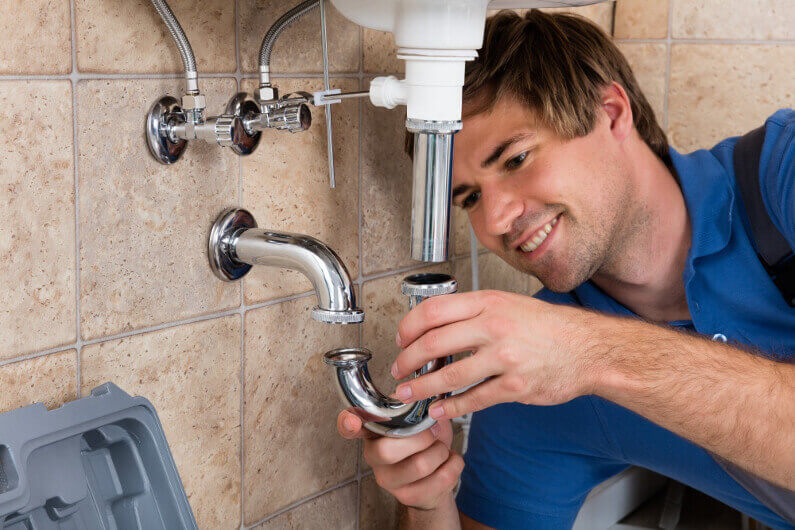Homeownership can be an exciting milestone in life, but with it comes responsibility. Maintaining the network of pipes that carry water and waste throughout your house requires regular care to keep everything functioning as it should be.
Leaky faucets, clogged drains, and other issues can quickly turn into expensive repairs that harm your house irreversibly. Preventative maintenance measures can help minimize these expenses.
To avoid problems like leaks and clogs that may result in costly repairs and damage, it’s important to give your home’s water and waste pipes regular attention. Visit https://www.diamondbackplumbing.com to learn more about Diamondback Plumbing’s preventative maintenance services.
Avoid clogged drains
Clogged drains are one of the most frustrating plumbing issues homeowners deal with, often inconvenient and costing both time and money to resolve – particularly if professional services are required for repair.
But there are ways you can keep your drains clear, eliminating potential clogs altogether and maintaining smooth running drains! Here are some useful suggestions you might implement to steer clear of similar regrettable occurrences in the future.
- Be mindful of what you put down the drain
Food scraps are one of the primary culprits behind clogged drains, which you can prevent with an efficient garbage disposal. Also, make sure that your strainers are regularly maintained; hair and food debris often get trapped there.
- Install a hair catcher in the shower
Clogged shower drains can emit bad odors over time due to too much hair being pulled down the pipe by overflow. To protect against this from happening again, consider installing a shower drain cover with an attached hair catcher over it to capture any additional hair that falls into it before it travels down.
Likewise, pop-up stoppers in bathroom sinks should also be installed and regularly maintained and cleaned as part of this solution.
Keep your water heater in good working order
Home plumbing systems bring fresh water in from outside sources, heat it for washing and sanitation needs, flush away wastewater from inside the home and flush any out to be safely flushed out again.
Regular inspections by a professional are important to catch minor problems before they grow rapidly into major repairs. An expert will make sure that your water heater operates efficiently and identify any potential problems. Schedule a professional inspection at least once a year to keep your water heater in top condition.
Leaks should be addressed quickly, including dripping or leaking toilets and water heaters that leak, to lower water bills and avoid more costly repair costs in the future. A clogged drain must also be addressed immediately to avoid more serious and expensive issues like mold growth; baking soda-vinegar solutions may often work to clear minor clogs.
Flushing the tank of your water heater annually is a crucial maintenance task. Over time, sediment can grow at the bottom of the tank, reducing its efficiency and causing corrosion.
If you own a traditional water heater, it is recommended that its temperature and pressure relief valve (T&P) be tested annually. This valve’s purpose is to release excess pressure before it causes your tank to explode by opening and closing appropriately. To test it properly, lift its handle up and down so that its opening and closing happen correctly.
Check your water meter regularly
Plumbing may only be at the forefront of our minds once something stops working correctly. Regular inspection and maintenance of your pipes and fixtures may reduce the need for professional plumbing repair services. Most problems stem from wear and tear or clogs; you can avoid them with proper care.
Early identification of problems is much cheaper and simpler to repair. One great way of doing this is checking your water meter regularly.
Detect hidden leaks that waste water by switching off all of the household plumbing and monitoring the meter reading for two to three hours after shutting it all off; if its reading changes after this timeframe, this indicates a leak and should be addressed by calling in professional help immediately.
Check your drains regularly for clogs; kitchen drains, in particular, tend to become blocked due to food waste and grease accumulation. Only flush human waste in toilets; anything else (including “flushable” wipes) could clog your pipes significantly. Finally, regular maintenance using a vinegar and baking soda mixture will keep them working efficiently.
Insulate your pipes
Pipes are an integral component of daily life, providing us with fresh water and waste disposal. Unfortunately, we often take them for granted until something goes wrong – such as frozen pipes or burst pipes, which cause flooding and require extensive clean-up efforts – but regular preventive maintenance can keep your plumbing in good shape and save on energy costs.
Insulating pipes is an easy DIY task that can save both money and inconvenience in repairs. Insulation of any pipe that runs through cold areas such as an unheated garage, basement or crawl space is particularly essential as it prevents it from freezing over in low temperatures and bursting into harmful bursts of leakage.
Insulation keeps pipes safe from freezing temperatures and creates a pocket of warm air around them to regulate water temperature and prevent condensation, which could otherwise corrode and damage pipes over time.
Pipe insulation comes in various forms, from polyethylene pipe sleeves and fiberglass wraps to spray types that can quickly and easily cover odd-shaped spots. Make sure that gloves and eye protection are worn prior to using any form of fiberglass insulation material, as handling this material can be hazardous.



